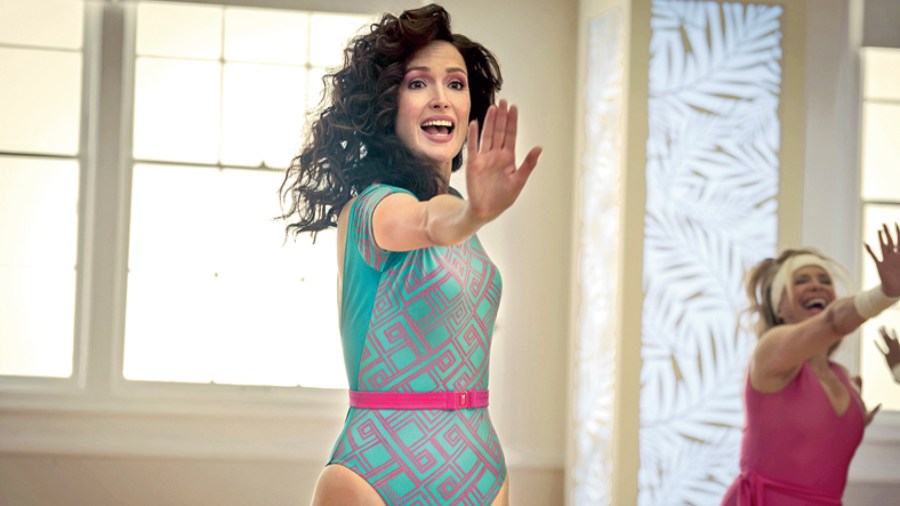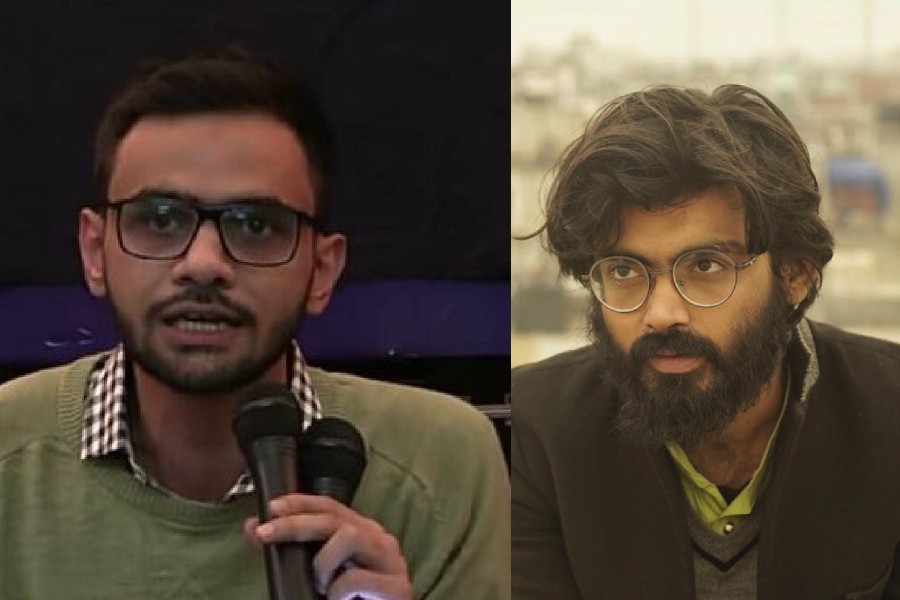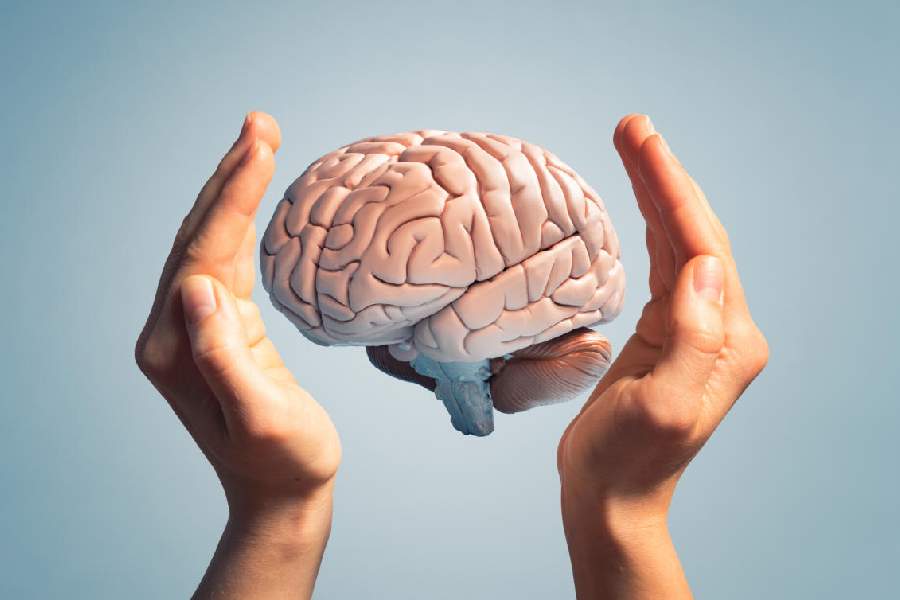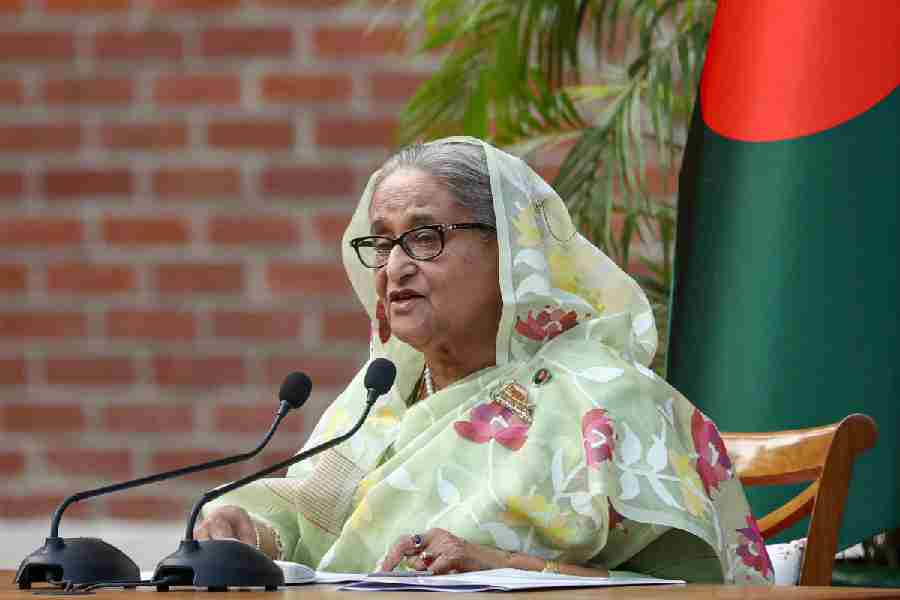Striped leotards, rainbow headbands and, of course, pelvic thrusts defined aerobic videos from the 1980s. Aerobics was everywhere, with people jogging in place with Jane Fonda, punching the sky and twirling the arms to the music of Olivia Newton-John. In her own way, Fonda united women through strengthening their bodies to combat patriarchy. At the same time, fitness routines offered a shift from the freewheeling lifestyle of the 1960s and ’70s while building an identity around consumerism. Fashion brands took full advantage of the decade of individualism and trends like power dressing and invention of fabrics such as Lycra. It was a complicated decade that made people seek perfection in everything.
A lot of these elements form the backbone of the dark comedy Physical, the second season of which is premiering on Apple TV+ on June 3. In a nutshell, Sheila Rubin (played by Rose Byrne) needs to be supportive of her failed-academic husband with political ambitions, Danny (Rory Scovel). She doesn’t believe in him but continues to live under the same roof. It’s the Reagan years in America and in 1981 Sheila is doing what many others were — put up a show of healthy eating while discovering the power of aerobics that made women feel more in control of their lives, of feeling liberated. The new season finds Sheila in the driver’s seat as Danny, after losing his political fight, turns to being a good husband and always-there father while the protagonist’s friend Greta (Dierdre Friel) moves far beyond a buttoned-up existence.
‘A great tool for humour’
Annie Weisman’s show can be polarising because of Sheila’s antihero characteristics but there’s no denying that Physical is an out-of-the-box experience.
“Like any interesting character who is polarising, you root for her despite all the faults. When we did Damages (legal thriller TV series), Glenn Close’s character (Patty Hewes) was such an antihero but you still rooted for her because you knew to do good she had to do some bad and I feel Sheila is also someone you are rooting for despite some of her behaviour. It is very complicated. It’s a long road and a tricky path. The whole show is an examination of it,” says Rose Byrne over a late-night video call.
Season one showed her on the cusp of starting an aerobics empire via VHS cassettes. In the new season, everyone wants to talk to Sheila, everyone wants to be like Sheila, but little do they know that new challenges await her. “She is still slogging it out. Still going for rinky-dink gigs and it’s a different battle this season. And then there is her eternal battle of recovery,” says Rose.
There are two other aspects to Sheila. Living with a chauvinistic loser like Danny, she’s unhappy, leading to an eating disorder — severe bulimia. She is often seen picking up burgers, checking into a motel room where she takes her clothes off before binging and purging. Second, she has a running interior monologue, be it when she is alone or when in public spaces. At times, her internal dialogues make her feel detached.
“I don’t think the inner voice is always right but it can be powerful. This season is about being able to harness that. In life also we have an inner voice and we need to know when to follow it or when to ignore. For someone who is suffering from bulimia, it’s a very complicated puzzle to figure out. It’s quite technical and adds texture to the piece. When I am physically doing the show, there is a way that I look into the camera. I loved doing the sequences. It’s also a great tool for humour,” says the 42-year-old actress.
Some of the topics can be ‘jarring’
There is also a vein of humour in the way Danny transforms from being a know-it-all to someone who is there for the family. Sheila can’t believe that Danny can change. “I was very excited to see the story move in a different direction emotionally. No longer he has to worry about being a politician and being a leader in a community and having to face the fact that he has lost an election and that he has to do some work at home if he has to save his marriage. It’s sort of a revelation. For me as an actor it was great to realise the challenge and not repeating myself from season one,” says Rory Scovel, who plays Danny.
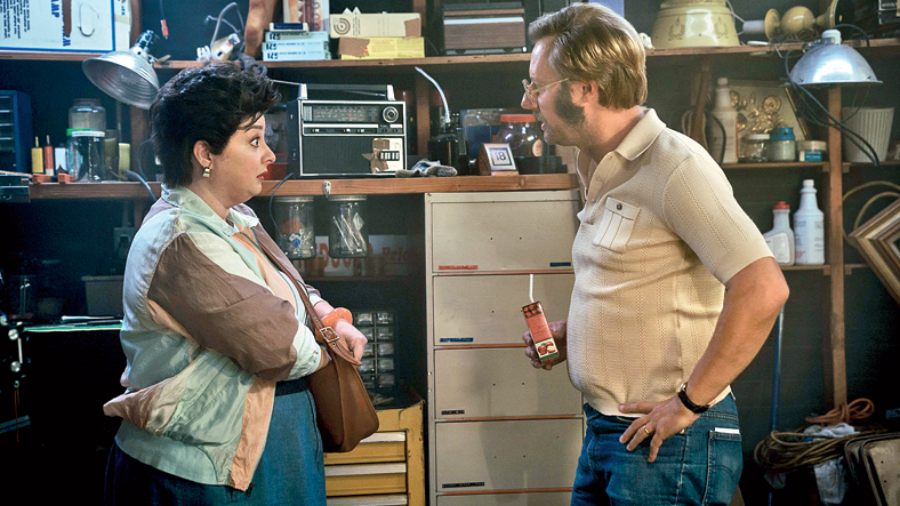
Dierdre Friel and Rory Scovel on Physical
Danny’s hunger for admiration fades one episode at a time while Sheila, who somewhat sat out feminism’s Second Wave, turns up the action and aims for world domination, one videotape sale at a time. At times one may think characters like Danny are no longer around and the things he speaks about on the show are no longer a part of the political landscape. Surprise, surprise. More the things change, the more they remain the same.
“In the Reagan era of politics he probably is somewhat ahead of his time in terms of the stuff he believes in. Outside of the show it can be jarring as to some of the topics that are still being discussed now in the real world. I think his heart is in the right place about the changes he would like to make as a politician. I do think that Danny is a sincere person and what comes with that is some naivety,” says Rory. “I think early on in this season, I have to put on this sincerity to placate my wife and bring the temperature down. It starts in a place like that but as the story progresses, Danny realises how he feels about her. I think he starts to become more and more sincere. As an actor that has made the season more exciting. The shallow motives become real to save a marriage.”
Also interesting is the way the show’s creator has given space to all the characters around Sheila, like her best friend Greta, who tries hard to win people over in the first season but now she is all about confidence.
“I had to do a lot sexy stuff this season and that’s interesting. What’s challenging is that someone like Greta who was all buttoned up in the first season and had to do a lot to reach a moment of acceptance with her husband to now go full throttle,” says Dierdre Friel, who plays Greta. Her role also comes with challenges. “Being a plus-sized actress in the early part of my career was a description that meant that I could feel bad about myself. On the show it’s celebrated and I come across as empowered. I am drawn to things that are complicated and funny. That’s how life is.”
Given how the first few episodes of the new season rolls out, viewers can expect the issue of empowerment discussed a lot. Sheila has her moments of self-doubt but she overcomes them. “Women found power in this era — the 1970s and ’80s — particularly in the health space. It’s uncompromising and it can be polarising for viewers but for me it’s something I am so drawn to and so fun to look at and examine,” says Rose.
What makes the Apple TV+ show relevant is how many young women rediscovered vintage aerobics videos online when gyms were shut during the pandemic. It has proved to be a great workout, much like the show.
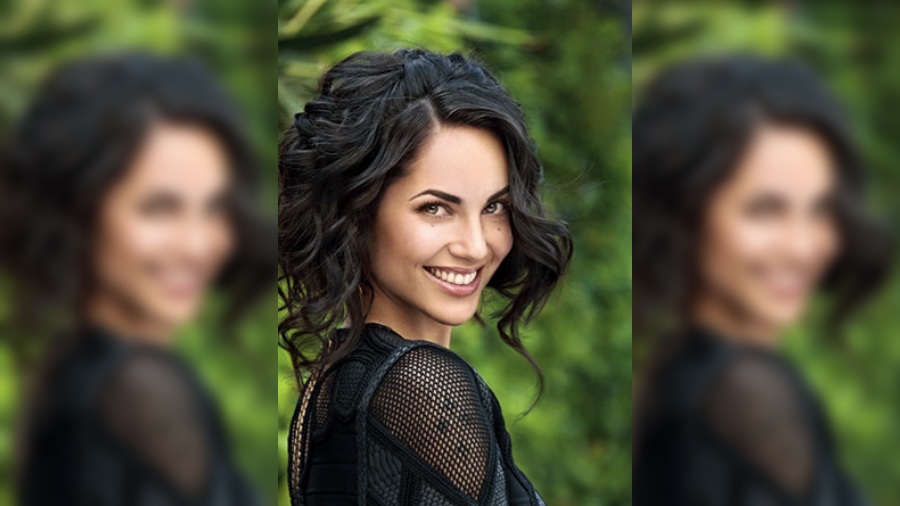
Ariel Award nominee Bárbara Mori
Coming up
Apple TV+ has announced a 10-episode series titled Las Azules, a new one-hour Spanish-language crime drama based on true stories of Mexico’s first female police force. Set in 1970, the series tells the story of four women who defy the ultra-conservative norms of the time and join Mexico’s first female police force, only to discover that their squad is a publicity stunt to distract the media from a brutal serial killer. As the body count grows, Maria, whose determination to catch the killer becomes an obsession; Gabina, an aspiring officer; Angeles, a brilliant fingerprint analyst; and Valentina, a young rebel, set up a secret investigation to achieve what no other male officer has been able to do and bring the serial killer to justice. Directed by Fernando Rovzar, the show stars Ariel Award nominee Barbara Mori as Maria.

